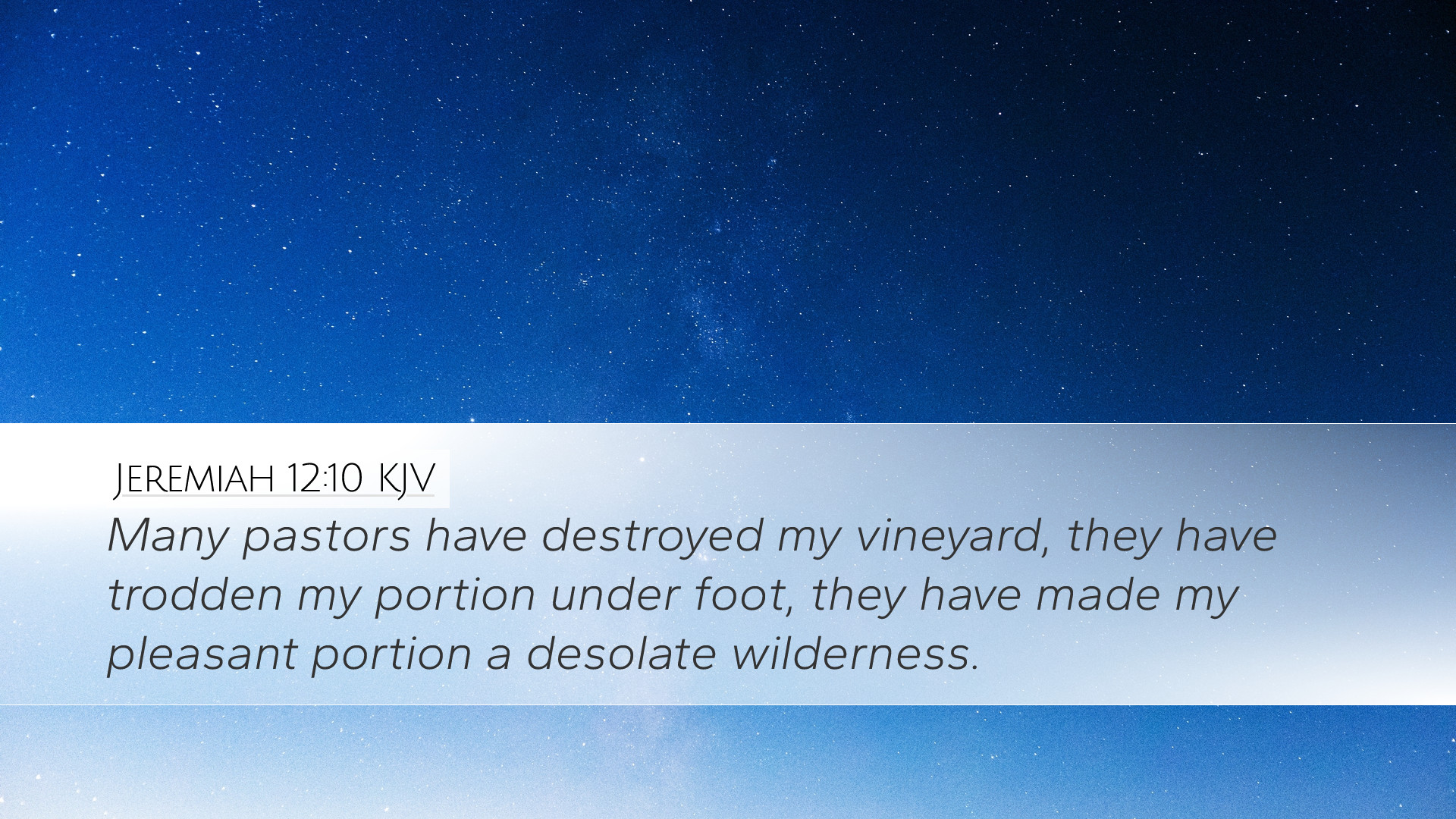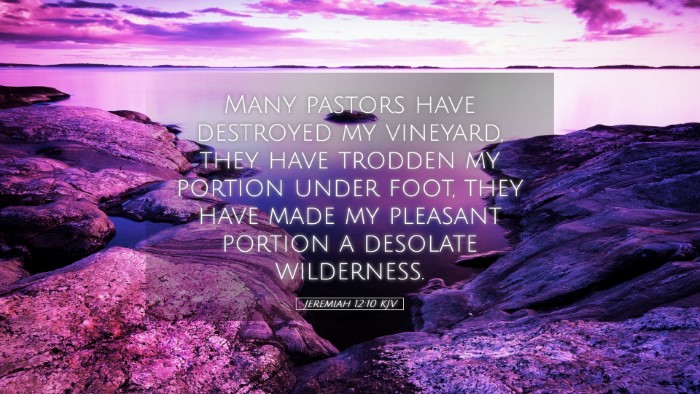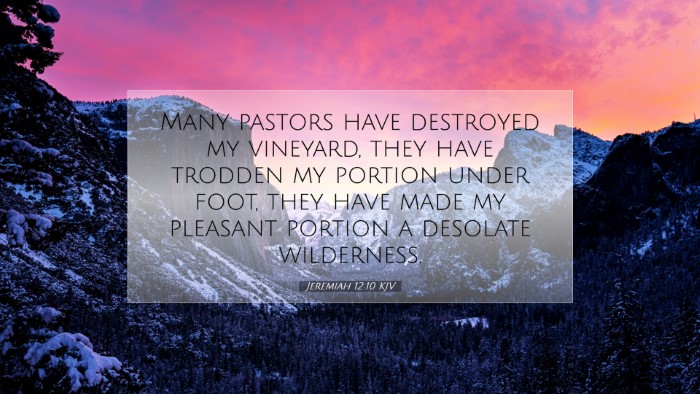Commentary on Jeremiah 12:10
In Jeremiah 12:10, the prophet declares, “Many pastors have destroyed my vineyard, they have trodden my portion under foot, they have made my pleasant portion a desolate wilderness.” This passage offers a profound insight into the state of Israel's leadership and their impact on God's people. The verse serves as a lament for the spiritual desolation caused by unfaithful shepherds.
Contextual Background
Before diving into detailed commentaries, it is important to understand the historical and social context surrounding this verse. God had called Jeremiah to be a prophet to Judah during a time of great moral and spiritual decay. The nation of Judah was besieged by idol worship and corruption, and the leaders, referred to here as 'pastors' or 'shepherds', played a significant role in leading the people astray.
Commentary Insights
Matthew Henry’s Perspective
Matthew Henry emphasizes the weight of responsibility that falls upon those in leadership positions. In his analysis, he highlights that the “pastors” symbolize not just the religious leaders, but all who have influence over God’s people. Henry notes:
- These leaders have neglected their duty, allowing God’s vineyard, symbolic of His people, to suffer.
- They have contributed to the spiritual wilderness by failing to teach, guide, and protect their flocks.
- Henry reflects on the dispensation of God's justice, establishing that God holds leaders accountable for their actions.
Albert Barnes’ Interpretation
According to Albert Barnes, this verse depicts the devastation wrought by the negligent shepherds. Barnes points out several key themes:
- The warning against false shepherds who drive the flock to spiritual barrenness.
- Judgment upon leaders who exploit their positions for personal gain rather than the welfare of their congregations.
- The metaphor of the vineyard is significant, as it emphasizes God's expectation for productivity and abundance among His people.
Adam Clarke’s Analysis
Adam Clarke provides a deeper theological reflection on the implications of this verse. He states:
- The “vineyard” represents not only the land of Judah but also the spiritual heritage of the Israelites.
- Clarke notes that the destruction of the vineyard signifies a loss of divine favor and a rupture in the relationship with God.
- He underscores the prophetic role of Jeremiah, expressing God’s grievance against those who were meant to care for His people.
Theological Implications
This verse raises critical questions regarding leadership within the Church and faith communities today. Modern-day pastors and leaders can learn valuable lessons from this passage:
- The responsibility of spiritual oversight is a weighty charge that must be respected.
- Faithfulness in shepherding involves not only preaching but also active engagement in the lives of congregants.
- Destruction of the vineyard symbolizes the dire consequences of neglect and moral failure.
Practical Applications
As pastors, students, theologians, and scholars reflect on Jeremiah 12:10, several applications arise:
- Evaluate the health of leadership within church communities.
- Encourage accountability and transparency among spiritual leaders.
- Focus on nurturing the spiritual growth of congregants to prevent desolation.
- Engage in prayer for restoration and guidance in leadership practices.
Conclusion
The poignant message of Jeremiah 12:10 serves as a timeless reminder of the critical role of leaders within the community of faith. By drawing insights from public domain commentaries, we can appreciate the multifaceted dimensions of this verse, emphasizing the duties inherent in spiritual leadership and the profound consequences of neglecting these responsibilities. Ultimately, this passage calls us all to reflect deeply on our stewardship of God’s vineyard.


